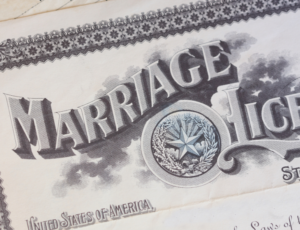A family reunion is a unique event, and is really quite unlike any other familial gathering. As a family grows and expands, quite often its members will move to new cities, starting families of their own. The family reunion is a singular opportunity for aunts and uncles, nieces and nephews, and distant cousins to gather together to reconnect and celebrate the family’s heritage. In many cases, a family reunion will be the first chance for many people to meet with the extended members of their family, and to explore their family’s history. Family informs who we are, and an opportunity to meet with distant relatives, and to share stories and memories, is the chance of a lifetime. But organizing a large family reunion is a major undertaking, and takes a considerable amount of time and planning. A few helpful hints may serve to set you on the right track for organizing your family’s big reunion.
#1 – Setting the Date
It is important to set the date for your family reunion early, as much as a year in advance, to allow all of the members of your extended family to make their plans accordingly. Typically, the date of the reunion will need to be set to accommodate vacation times and school schedules. Out of town family members will also need plenty of time to make travel arrangements and to book hotel accommodations.
#2 – Who Will You Invite?
You need to decide early on in the planning stages just how far reaching you want your family reunion to be. Will you be limiting the guest list to first cousins, or will you be extending invitations to third cousins twice removed. When deciding on who to invite, you may be surprised just how many relatives you have. Ideally, you would invite everyone, but that is often unmanageable. Once you have decided on a guest list, you will be ready to move on to the next step – setting the budget for your reunion.
#3 – Set A Budget for Your Reunion
Before any major decisions can be made, it is important to set a budget for your family reunion. This should cover the cost of the event space, catering staff, and decorations. Depending on your plans for the event, your budget may also need to stretch to include entertainment and photographers. After you’ve set a budget, you will need to consider how you’ll be paying for the event. Reunions can be costly affairs, particularly if it’s a large family with members scattered from coast to coast. In most cases it is too much of a financial burden for one family member to shoulder alone. Typically, donations are taken from all branches of the family, and members will be responsible for their own travel costs. Quite often, families will organize fund raising events, such as bake sales and car washes, to help pay for the reunion.
#4 – Location
With the dates set, and the budget organized, it’s time to decide where your reunion will take place. A large family reunion needs a proper event space to be really successful. Backyard family reunions always sound quaint and ideal, but they are really much harder to organize. By hiring a professional event space, you can be sure your reunion will be held in a clean, spacious, and comfortable environment. When hiring an event space, be sure to consider the location and choose a venue that is as convenient as possible for the majority of your guests. You may want to consider a venue that is close to the hotels where your out of town family members will be staying. It is important to book the event space early, to make sure it is available for the full duration of your reunion. You don’t want to have all of your plans set in stone, only to find out that the event space is only available for one of the three days you expected.
As you go on to plan the particulars of your family reunion, it is often helpful to appoint a member of each nuclear family to act as liaison to help coordinate activities and travel plans, and to ensure that each branch of your family is kept up to date with developments. This will also make it easier to choose a menu (you’ll be able to check on any dietary restrictions for your attendees), to book entertainment (you’ll know what grandma and grandpa won’t tolerate), and to keep track of the RSVPs.
Family reunions don’t happen every day, and it is important to plan carefully so that everyone enjoys the event to the fullest. Take your time, start early, and reach out to members of your nuclear family and beyond for help and support. With the right planning, you can stage a reunion that will go down in the annals of your family as an event to remember.





